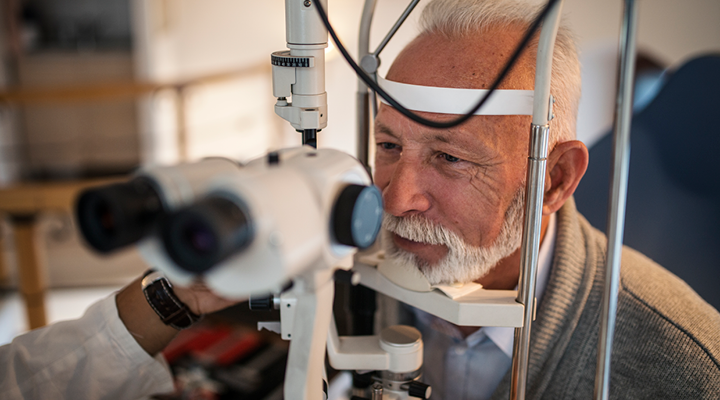A diagnosis of any form of cognitive impairment, such as dementia, is a heartbreaking reality for millions of older adults in the United States. While there is currently no cure for some diseases that cause cognitive impairment, there are ways to reduce your risk.
According to Harvard Medical School, exercise, eating a Mediterranean diet, and putting focus on good sleep are just a few ways to lower your risk for the disease. In addition to these lifestyle changes, taking care of your eye health may also decrease your chances of developing cognitive impairment.
The link between vision health and cognitive impairment
Studies have suggested a potential connection between deteriorating eye health and an increased risk of cognitive impairment. Basically, the study found that people with vision impairment were associated with a higher risk of developing cognitive impairment compared to those without vision impairment.
According to an article from the Journal of the American Medical Association, “A recent systematic review and metanalysis reported that vision impairment is associated with 2.4-fold greater odds of cognitive impairment in existing cross-sectional studies and 1.7-fold greater odds in longitudinal studies.” This was further proven when looking at results from a longer period.
The study further suggests that vision impairment might be linked to cognitive decline due to conditions that impact cognition, including depression, social isolation, reduced engagement in mentally stimulating activities like reading, and increased cognitive load.
Importance of regular eye exams in older adults
Regular eye exams and treatment for poor vision, often underestimated in seniors, could hold the key to reducing the risk of developing diseases associated with cognitive impairment, including Alzheimer’s disease.
A study from the American Journal of Epidemiology suggests that “Persons diagnosed with late-life dementia, particularly those with Alzheimer disease, had poorer vision and received fewer ophthalmologic services prior to their diagnosis than those who aged with normal cognition.”
The study also found a strong association between dementia and prior eye-related services. It states, “The risk of developing dementia was 56% lower for participants who had an eye procedure compared with those who did not. The risk of dementia was reduced 64% for those subjects who had at least one visit to an ophthalmologist compared with individuals who did not visit an ophthalmologist.”
Although annual eye exams are important for everyone to keep their vision sharp, older adults may receive the added benefit of reducing their risk of developing dementia by detecting and treating vision problems early.
Eye exams do more than protect vision
The connection between eye health, eye exams, and cognitive impairment risk in older adults is a potentially promising field of research. By recognizing the importance of routine eye exams and timely vision treatments, researchers may be paving the way for a future where the preservation of vision becomes a cornerstone in the battle against cognitive decline.
Annual eye exams are easier with vision insurance. Learn more about our vision insurance plans today.

